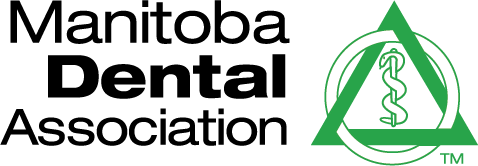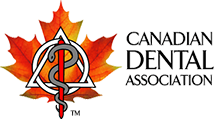Concern with a Dentist
The Manitoba Dental Association (MDA) protects the public by regulating the profession of dentistry and registered dental assisting in Manitoba in the public interest and by providing an objective complaints process that is accessible and follows regulatory standards. The MDA and its Peer Review Committee provide a process to evaluate and resolve problems that may arise as a result of dental treatment.
Step 1: Discuss the Issue with Your Dentist
If you have a concern, we encourage you to first discuss it directly with your dentist in an attempt to find a mutually agreeable solution. This is the most expedient way to resolve your concern and to maintain the dentist/patient relationship and your privacy.
Step 2: Contact the MDA Office – Informal Conflict Resolution (mediation)
If you have spoken to your dentist but are still not satisfied, you may choose to contact the MDA Office. In many cases, the MDA may be able to help in resolving minor disputes through an informal conflict resolution process. This process is informal and voluntary for both parties. The goal is a mutually agreeable solution between you and your dental health care provider.
Step 3: Written Complaint
If the complaint is more complex and cannot be resolved informally, you may forward a complaint, in writing, to the MDA office to have the mattered reviewed. Complaints should be made in writing to:
Complaints Committee
Manitoba Dental Association
202-1735 Corydon Avenue
Winnipeg, Manitoba R3N 0K4
You must include:
- Your name, mailing address, telephone number and email;
- The name and address of the dentist involved;
- The name(s) and address(es) of any other dentist(s) you have consulted
- The nature of the complaint, including a detailed description and any supporting documents you may have;
- The resolution you would consider to be appropriate;
- Your Signature
Step 4: Review by Complaints Committee
Complaints Committee members are selected from a roster of dentists (or registered dental assistants; if applicable) and public representatives (appointed by the Minister of Health), from the Peer Review Committee to review these complaints.
The Committee comprises:
- Two licensed dentists (or registered dental assistants)
- One public representative
Once your written complaint is received, you will be contacted by a representative of the MDA to discuss your concerns and review our process. Your formal complaint letter will be sent to the dentist for a response and a request for your records will be made. The Complaints Committee reviewing your case may assign an investigator to gather information/evidence or conduct interviews. You will then be contacted either by a member of the Complaints Committee or the investigator to review your concerns.
The Complaints Committee will attempt to resolve the concern to the mutual satisfaction of both parties. The Complaints Committee may consider the return of money through mediation. If a mutual agreement can be reached, a mediation release form will be signed by both parties to formally indicate acceptance and the resolution of the complaint. Mediation is voluntary for both parties and the MDA does not have the authority to force a dentist to return money.
If the Complaints Committee finds that the dentist has exhibited conduct that is unprofessional or that acceptable standards of practice have not been met, the Complaints Committee has the authority to issue a formal written caution. This is intended as both a warning and advice on the avoidance of similar issues in the future. A formal caution is confidential but will remain on the members’ file. In situations that are more serious the Complaints Committee may accept the voluntary surrender of a member’s license or recommend that a formal review be held. This review is called an Inquiry Panel and the dentist may have formal charges laid against him or her. This is a formal hearing that involves lawyers, a court reporter, witnesses and a panel consisting of two dentists from the Peer Review Committee, as well as a public representative. Even though charges may have been laid, the review is not a criminal or civil proceeding but rather a regulatory review. If the Panel finds the dentist guilty of the charges, it has the authority to impose penalties ranging from mandatory courses to upgrade clinical skills, to suspension or loss of license.
A review by the Peer Review Committee is not a civil court proceeding and therefore, the MDA cannot force a dentist to return funds, pay for pain and suffering or lost wages/out of pocket expenses. If this is your primary concern, please refer to Step 6: Civil Litigation.
Step 5: Appeal
If you are not satisfied with the review of your complaint by the Complaints Committee and feel that the information was not reviewed appropriately or that there is additional information that was not considered in the review, you may appeal the Complaints Committee findings. In cases where the complaint has been settled by discipline to the dentist, in accordance with the Dental Association Act, the case may not be appealed.
The appeal must be filed, in writing, to the Chairperson of the Peer Review Committee giving reasons for the appeal. It must be received by the MDA within 30 days of the date of the written response of the findings of the Complaints Committee.
Step 6: Civil Litigation
If a mutually agreed settlement cannot be reached by the Complaints Committee, you may seek legal advice from your own lawyer and consider proceeding with civil litigation.

